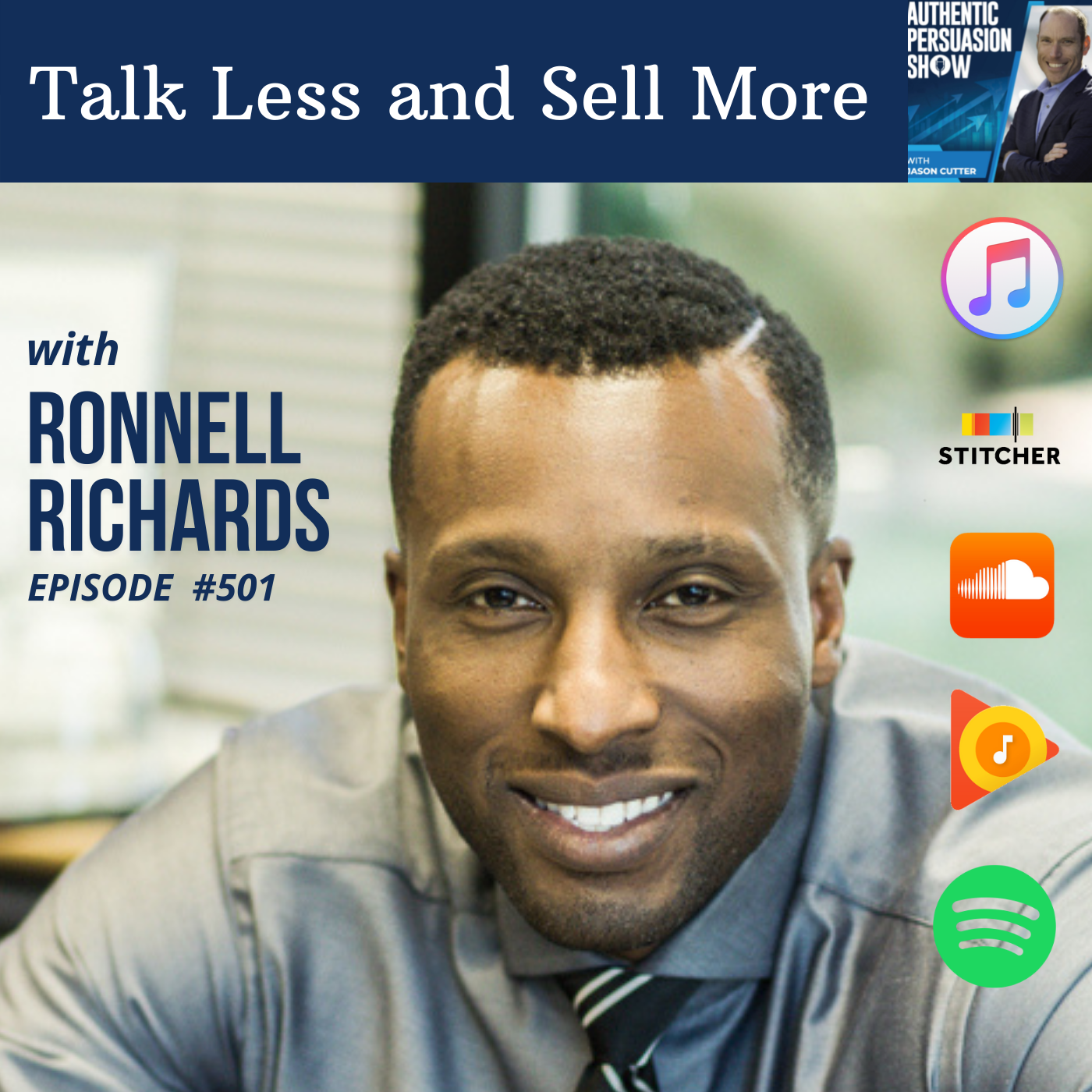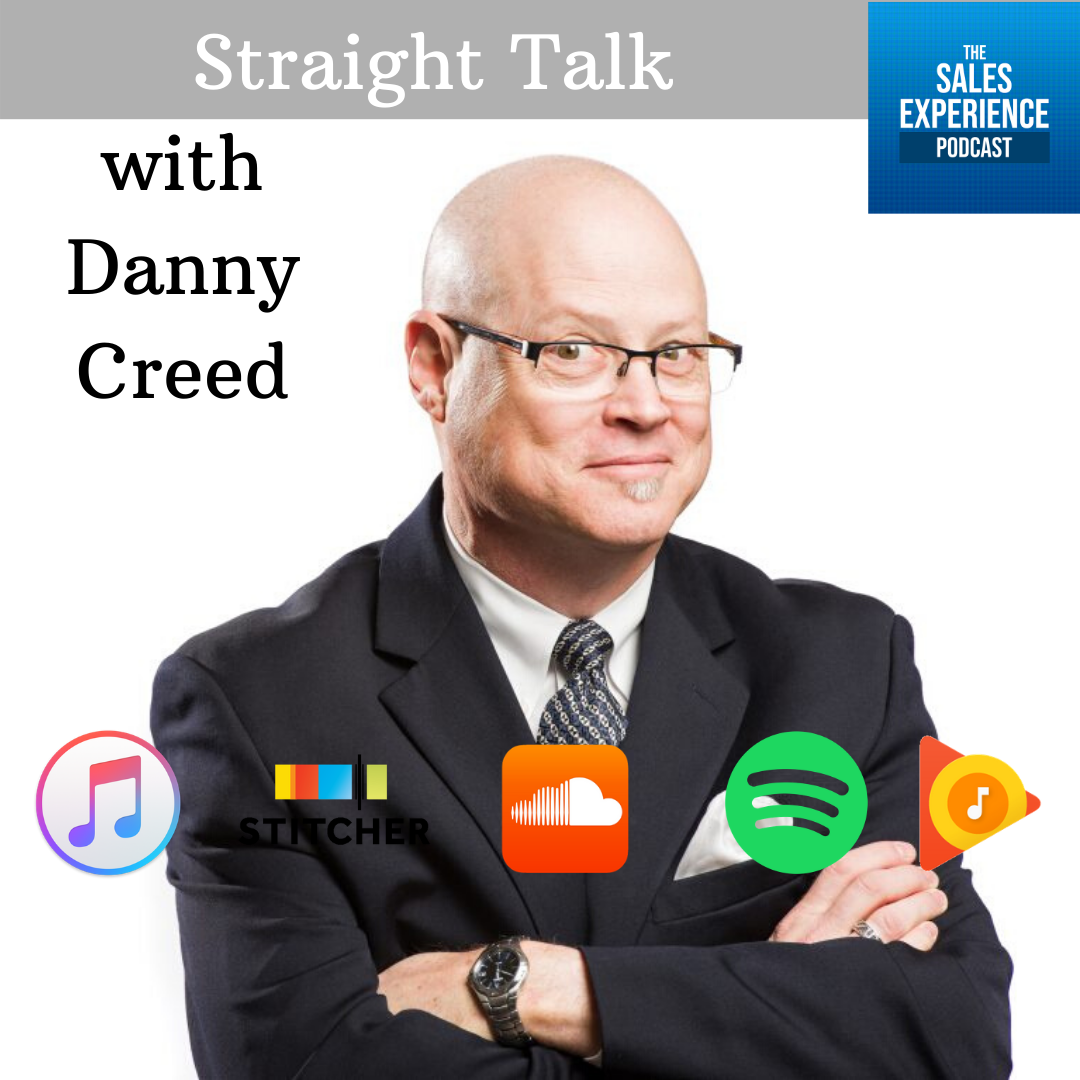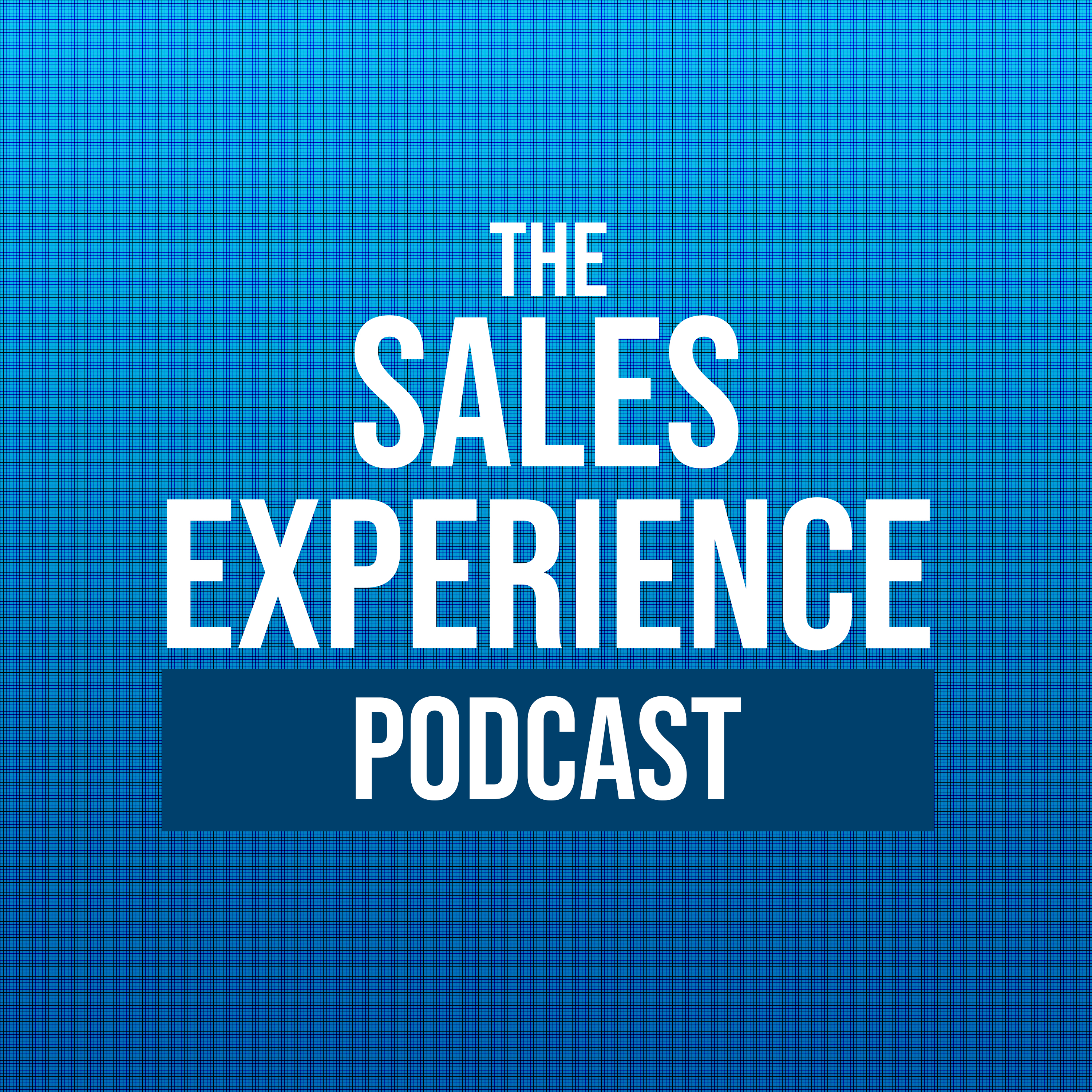Episode Transcript
Jason: Hey, welcome back to the sales experience podcast. My name again is Jason Cutter. So glad that you're here. You are joining part two of my conversation with Peter Kozodoy. I had the pleasure of being on his podcast when we started talking and then having him on my show is amazing because I just love the stuff he does.
I can't promote him enough. For his message of this honest to greatness, the strategic honesty, the stuff, if you didn't catch it, make sure you listen to what was in part one and then what we're going to continue to talk about because it's in such alignment. And for me, I come from such abundance that if you read his book and not mine or you follow him.
Where you hire him instead of me. It's all making a positive difference in the world. And I think that's just great. Obviously by both books. But it's such a good message. And I just love this so much. And it's what the world needs more of. So here you go. Here's part two. And then they started coming out with commercials that said, Established in 18, blah, blah.
Reestablished in 20, blah, blah. Hey, we realized it. We're sorry. We screwed up. And we're gonna make this better. And we admit it. And we're bringing it to the forefront. It's the only way. And I think that's what people crave because my feeling is that everyone knows marketing is lying at some point, sales is lying at some point they have their own incentives.
People run ads on TV because there's something in it for them. I've always said if you don't believe that, go to a car lot, get out of your car and see how excited that salesperson is to greet you at your car. Why are they excited? Because you're a walking dollar sign. That's literally it. They do not care generally like salespeople.
That's the perception anyway. And so when they hear the honesty and they hear the mistake, it's okay, they're human. They're just like me. And maybe I can trust them because nobody's perfect and want to work with. That's why one of the biggest things that I've always trained all my sales teams and coach people to do is no product or service is perfect.
There's nothing that has zero downside, zero trade off. You want to make a lot of money. It's going to cost you a lot of time and energy, right? There's no perfect anything, right? You want to join a gym? That's great. You're going to have to go and you're going to have to work out, right? Like it actually takes some work.
The more you can bring up those might be downsides or negatives or trade offs in the sales process, people will appreciate it. You set the right expectation. And then when it occurs, they're like, yeah, that's right. They said this was going to happen. And it did.
Peter: And the expectation thing is so critical.
And I talk about that in my book do you mind if I be, like, really honest with you? Sure, that seems fair and appropriate. I can tell you something about myself, Jason, but you can't repeat it outside this Zoom room, okay? Okay, I won't. I won't repeat it. I'll share it, but I won't repeat it. My favorite thing to do on Martini Mondays, which I guess I already told you something, is to watch Below Deck on Bravo TV.
I just love that show. Are you familiar with it? No.
Jason: So it's about, but I'm sure it's amazing. If it's on Bravo it's people,
Peter: it's gotta be high quality's about people, the, and I'm so anti drama in my own life, which is why I probably find it so fascinating. But it's about these people who work on super yachts and so literally Below Deck and they're serving all these high net worth individuals and stuff and it's just hilarious.
Drama and ensues. It's fantastic. I'm ashamed to admit it, but I love that show. The reason I bring that up is that at the beginning of every season, the chief steward, who's in charge of all the interior people, has a meeting with her new underlings her new direct reports, and it always goes the same way.
Chief stewards are usually very strong personalities, they're usually very harsh in their delivery, and I think every season I've seen it's been a woman, so she will sit everyone down and be like, Sometimes things get hectic, and I can be direct or whatever, but I promise I'm not a bitch, and I'm gonna stay nice and all that, and she sets that expectation, right?
And now when all hell breaks loose, she does end up turning into a nasty person, right? Not only because she is, but because of the environment, and all the people who work under her. are like, what the heck? She would be so much better off coming to the table and being like, I am such a terrible person, I'm gonna yell at you, I'm gonna scream at you, I'm gonna be miserable at times.
Man, you are in for it. When you set the expectation that way, and you deliver everything above it, people will be fine, right? No one's gonna be like, you lied to me. You said you were a terrible person. It doesn't work that way. So the setting expectations thing is so critical, and I wish people paid more attention to it.
Jason: And I see that also show up like what you're saying in that new employee situation, especially sales teams, because that's the world I live in the most like sales and operations, especially sales managers are hiring salespeople and over promising and making it seem exciting. And the you'll make six figures in your first three days, like kind of impression and.
You won't have to do much effort for it. And then all of a sudden you sit them down and you put them on a dialer and they got to make 200 cold calls a day. And there's a huge disconnect. I started switching it up where I would literally run group. interview sessions, and I would make it sound as terrible and as painful as I could with the one goal of getting someone to walk out in the middle of my presentation because I wanted to weed those people out.
And I wanted people to win, but I didn't want it to sound like the scene out of Boiler Room where I'm sliding my Ferrari keys across the table because you could be make millions.
Peter: And that's strategic honesty. It's exactly what it is. Like I am going to be honest for a very specific reason and it works every time.
It's amazing that people don't do that naturally.
Jason: Now, let's go into some of the questions that I wanted to ask, which we'll weave into that. Tell me about what inspired you to start this journey, your business, the book. What triggered that?
Peter: I had a terrible tragedy happen to me a couple years ago.
It's embarrassing to even talk about. Maybe this has happened to you, I don't know. But, I turned 30. And that was awful. Because the first time in a long time, I ended up in a place where I knew I was out of what I call honest alignment with who I really was and what kind of life I really wanted in that.
And it was confusing to me because by 30, I'd built a million dollar company, just got married. My wife and I were flipping a house. Life was fine, but somehow I knew something was off. Searching back over the years, I realized that I had two massive failures as a teenager that I'd never let go.
One was I was on a track to an Olympic hopeful figure skater. Very serious figure skater for about 15 years. And the other was I was convinced I was going to Harvard. Some of my family members had gone. I grew up in Boston. It was just a given that's what was happening. By 18, turned out I was not going to be good enough to get to the Olympics, just wasn't going to happen.
I applied to Harvard, Harvard sent me a very nice letter back saying thank you, but no thank you, don't call us again. And it was devastating. Now, those are, turns out, two massive chips on one shoulder to fuel an entrepreneurial expansion. And it really did, it really fueled me in my 20s to build a company.
But what it also did, Jason, was that it Made me accept a second best scenario. It's first best Peter, that's not going to happen. So I guess I'll have to be second best Peter. And it was only after 30 that I put all that together and realized that I hadn't been honest with myself, but what I really wanted.
One of those things was to write a book. So I actually sat down to write what I thought was a marketing book. And once I got done with it, and I queried a bunch of literary agents, and I got a couple meetings, and one signed me, he was like, just so you know, this isn't a book about marketing, it's a book about honesty.
And I was like clearly you're the one literary agent who can't read, because it doesn't say anything about that on the cover, so I don't know what you're talking about. And of course, when I looked back and I was thinking about it, he was absolutely right. It was much bigger than just how do we sell, how do we market.
It was really, how do we lead, how do we establish teams, how do we build better cultures. What do we believe about society and about the way we function as human beings? And how do we communicate with each other to build trust? So it turned into something much bigger than even I thought. And mind you, Jason, I'm the person who is like most likely to continue being a jerk in like high school, right?
So for me to talk about honesty and transparency and vulnerability and all this crap, trust me, if I can learn how incredibly outcome driven, how incredibly effective these things are, and I can use them. Anyone can. Trust me on that. And
Jason: I think it's interesting as you're talking, what you touched on earlier, is the voted most likely to be a jerk kind of mode, sometimes that happens because of the honesty and the lack of filter, right?
Sometimes it's just because someone's mean, but sometimes it's just because they literally say whatever they're feeling. Sometimes that doesn't come across right and or sometimes the audience or the world doesn't like or want to hear the truth and so it has a negative reaction. I will tell you, I have not generally been liked by a lot of my co workers in the org chart at the same level I've been at before I became a consultant because I believe in honesty and accountability and that's not what they wanted.
They didn't want to be held accountable and I'm just like, you said this happened, what's going on? It's affecting the company. Owners love me. Other c suite executives aren't always, because they want to play the political game, right? And I think that's what you're talking about, where it's the jerk, but it's the jerk because you're being honest.
Peter: That's really, when I sat down to write that marketing book, it came out of my frustration having clients, c suites, like the ones you're describing, they're like, yeah, okay, that might be true, but ego, bias, self limiting belief BS, it was just like, what? I have an MBA from Columbia. Trust me, they did not teach us what to do when a leader ignores the truth in favor of his or her own ego.
That was not a class. The first time I saw it, I was like that was weird. Second time I saw it, I was like, wow, that's really weird. The 18, 000th time I saw it, I was like, this is a big problem. And you're right, though. People don't like being told the truth if they've already decided against it. Which is why, literally, I have a chapter in the book.
I have a chapter for entrepreneurs, managers, frontline employees, C suite executives. Because deploying honesty is different depending on the role. But I also have a chapter on, hey, here's how you act politically in order to act honestly. Because that's the part I was missing, back to what you were saying about Voda most likely to be a jerk.
It's I used to think honesty was the thing we decided at the very beginning of this show, honesty was not. I had to learn how to be honest, not only with others, but about others. And in that case, how do you get things done? And I've built all kinds of guardrails around myself. I was telling you, I was doing a workshop for executives yesterday, all about hey, the words you should No more.
You're not going to say that anymore. You're not going to give advice because all that does is put up someone's ego barrier. By the way, when someone's talking, you're not going to talk over them for the purpose of getting your opinion into their mind. You're going to shut the hell up and listen and just repeat back to them.
Hey, I heard you say this. Is that correct? Okay, cool. Tell me more. Hey, I heard you say that. Is that correct? Okay, cool. Tell me more. That makes me wonder if X, Y, and Z, based on what you said, am I off base? What do you think? If we can change our language, to be more honest, it is miraculous how much we can learn from the people around us that will actually help us bring the truth to the table.
But we can't do that if everyone's ego is involved and all their ego barriers are up. And no one's listening to anyone, by the way, we have that going on in society right now. It's a real problem. It's like before this pandemic of coronavirus, I keep saying, I was saying on Fox in Chicago last week, we have been living in a pandemic of dishonesty and it's societal.
It's the way we talk to each other. It's all these things. And unless we get over that, the other issues are just the crap that's on top of the real fundamental issue here.
Jason: And I think that's a pandemic of dishonesty, like you're saying, and a pandemic of not listening, like not that active listening and not actually hearing what people say.
It's I don't even think it's just a social media has made people just put stuff out and not take anything in. It's just one of those things. That's what I tell salespeople all the time. If you actually ask questions and listen and then cared, your prospects will be so blown away because I'm going to bet nobody else in their life.
Peter: They sell themselves. Honestly, I can't. Once I started to realize these things and implement them on sales calls, if I just shut up and ask good questions, they'll sell themselves. And at the end of the call, they're like, Oh, wait, what do you do again? Oh, yeah, no, that sounds good. All right, let's do that.
Wow, you really understood me. You just talked like, that's it. It's that easy. So yeah, no, great lesson.
Jason: All right. That's it for part two of my conversation with Peter. I will catch you tomorrow on part three of this conversation. See you then. That's it for another episode of the sales experience podcast.
Thank you so much for listening. If you find yourself on iTunes, can you leave the show a rating and a review? It helps other sales people and sales leaders find the show and please subscribe to the show and share episodes you find valuable with anyone you know in sales. Help me on my mission of changing the way sales is done.
And if you're ready to work together, go to Jason cutter. com. Again, that's Jason cutter. com. To find out how I can help you or your company create scalable sales success, I will see you on the next sales experience podcast episode. And keep in mind that everything in life is sales and people will remember the experience you gave them.
![[E297] Honest to Greatness, with Peter Kozodoy (Part 2)](https://episodes.castos.com/salesexperiencepodcast/images/Peter-Kozodoy-Cover-Image.png)


